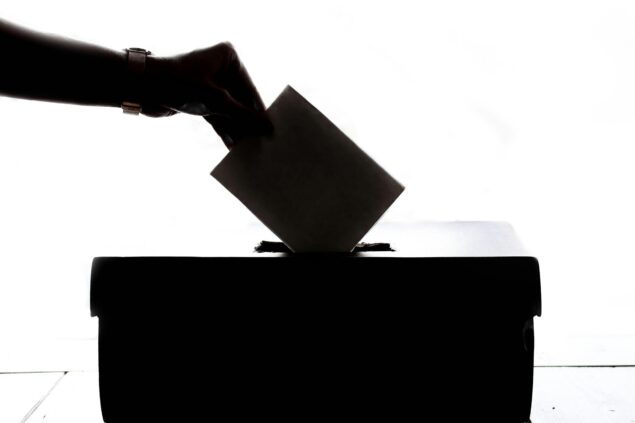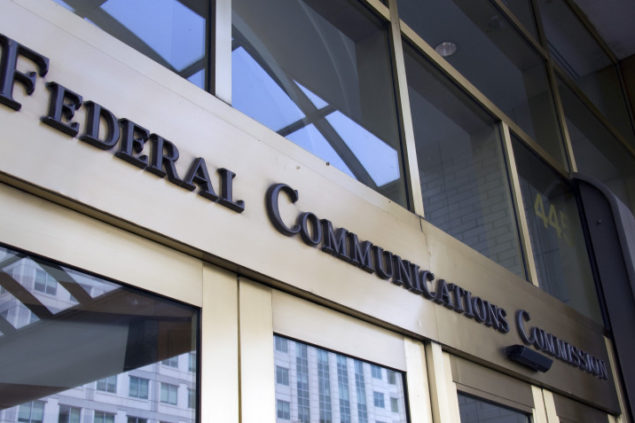Tech Roundup Episode 10 – Trump’s Executive Order on Online Censorship

What is the legislative and legal background of the recent Executive Order on Preventing Online Censorship, how will it affect Section 230 of the Communications Decency Act, and what may be the unforeseen consequences of this move? These and other questions are addressed in this episode.
Transcript
Although this transcript is largely accurate, in some cases it could be incomplete or inaccurate due to inaudible passages or transcription errors.
Adam Thierer: Hello and welcome to the latest installment of the Tech Roundup Podcast, which is part of the Regulatory Transparency Project’s ongoing Fourth Branch Podcast series. Our Tech Roundup Podcasts feature leading policy experts debating the major legal issues surrounding various emerging technology industries and issues. My name is Adam Thierer, and I work for the Mercatus Center at George Mason University. I will be your host for today’s episode.
On today’s show, we will be discussing important breaking news in the world of online speech policy with President Trump recently issuing a new executive order on preventing online censorship, which he signed on May 28th. This new executive order followed on the heels of a very public fight between the President and Twitter after the social networking platform added a fact check notice to one of the President’s tweets about mail-in voting. And now a major public policy battle has developed about the wisdom of regulating social media platforms in the United States more generally.
To discuss these matters and the new executive order, I’m joined today by two of the sharpest technology policy lawyers I know, Ashkhen Kazaryan, who is the Director of Civil Liberties at TechFreedom; and Neil Chilson, a Senior Research Fellow for Technology and Innovation at the Charles Koch Institute. Ash and Neil are also members of The Federalist Society’s Emerging Technology working group, which is part of the Regulatory Transparency Project. I chair that group.
So let’s jump right into it, and Ash, I’m going to turn to you first and help us give us a little bit of background about how we got to the point where the President of the United States was issuing executive order targeting social media companies, accusing them of censorship, and calling for new types of public policy regulation. Give us some background.
Ashkhen Kazaryan: One day, hopefully, I can write a book about this, but the quick version would be that after the 2016 election, obviously, the public discourse has been way more volatile than it has been before. And since a lot of the public discourse now happens online, the mediums that hosted a lot of that were affected too.
We started hearing voices that claimed this conspiracy theory, basically, because there’s no empirical data proving it, so that’s what I’m going to call it, of anti-conservative bias across social media platforms. So for the last year — the last two years, the mainstream voices that picked that up were first Senator Ted Cruz and Senator Josh Hawley. Follow him pretty fast after. And they have been steering a lot of different conversations that we can get into later.
That has led to the White House last year, being rumored, to—and when I say last year, I believe it was late 2018, early 2019—rumored to issue an executive order on regulation of social media companies. They didn’t. But obviously, something was in the works. And so when Twitter made a decision as a private company—and I’m sure it was a very difficult decision—to put, I wouldn’t even call it a fact check because it wasn’t a fact check in its substance. It was a disclaimer that said if you want to learn more about mail-in ballots, press here. All hell broke loose. Just last week, I believe it was — the last week of May, it was [the] 27th when it started.
And so that very quickly turned into the President saying that he’s issuing an executive order to protect his First Amendment rights and protect the First Amendment, even though it was not clear how exactly he understands the First Amendment. And then we saw the order being issued and what exactly it had.
It was a little different from the leaked order that a lot of the commentators gave their first impressions on. But I’ll stop there, and we can dive in later.
Adam Thierer: All right. Now let me turn to Neil Chilson, and ask you, Neil, to expand a little bit about specifically what’s in this new executive order, and specially, how it’ll affect Section 230.
Neil Chilson: Yeah, so thanks, Adam. You can split the executive order into three categories of content. This was Daphne Keller’s analysis, and I thought it was very useful, so I’m going to borrow it from her. There’s sections that are purely rhetoric, and this is quite a lot of the EO, actually, that sort of try to frame this as a defense of free speech when, in many ways, it’s an attack on free speech. There’s another section that is just highly legally questionable analysis. And then there’s a very small section that is some legitimate questions of law, and I think we can talk about those.
But when it comes to Section 230, what this document tries to do is rewrite the law, or more clearly, it tries to direct various independent agencies to rewrite Section 230. Now, Section 230 is a statute. It was written by Congress. It has certain terms that have been interpreted in hundreds of cases by the courts as they’ve applied this. And what the executive order does is it directs NTIA to request that the FCC start a rulemaking in order to interpret some of the terms of Section 230.
Now, Section 230 is not a long law, but it has some terms that have a long legal history at this point, including the good-faith sections where, in applying some of the exceptions where the question is whether or not the internet provider was acting in good faith in removing content. What the executive order tries to do is overturn how courts have interpreted that provision by having the FCC do a rulemaking. And that’s pretty questionable legally. And I think it doesn’t make a ton of sense as something that the FCC even has the authority to do.
Adam Thierer: Right. Let me turn back to you, Ash, and as I do, and ask you to expound upon the things that Neil just teed up about the executive order. Also, I want to ask you to help us take just a step back because you’ve been following these battles about net neutrality and political neutrality and media platforms for a while now. And there’s, of course, a number of different ironies in this debate.
One irony is that Twitter itself, and other social media companies, have been in favor of some sort of net neutrality or neutrality mandates in the broadband context. And now here people are saying they should be applied to social media. And the other irony would be that if President Trump and many conservatives now seemingly are in favor of net neutrality regulations they opposed or fairness doctrine-like mandates that they’ve opposed in the past. So the whole world’s gone a little bit crazy it seems, and maybe you can help us frame that in the context of what this executive order proposes.
Ashkhen Kazaryan: Sure. So the net neutrality battle has been something that started kind of picking up — it’s been a decade of that but really hot topic it was during the Obama administration, actually, and then it went into the Trump administration. And the net neutrality question was what split the tech, the bigger tech community. And it kind of separated the Edge providers, platforms from [inaudible 08:00] because the Edge providers sided with — leaning to overregulate when need to. As for neutrality it has to be in the books; it has to be Title II. All of these things.
I wasn’t there when this all happened. I heard it was very intense. However, this battle is still going on. We had Chairman Ajit Pai pass his own order, and without getting into details, what I will say is I think a net neutrality that is definitely common ground that unfortunately no one can hear or come to. And now it’s kind of transcendent into this new reality of, “Okay, how do we regulate social media companies?” And social media companies are obviously against — anyone should be against demanding that they are neutral. And so there is definitely some irony, as you said, in defining that, or how to message that for them, and for everyone on the Republican side who obviously opposed net neutrality.
And especially since the order does say, “Ask NTIA,” which is an agency that’s kind of under the administration, and it’s not independent, to send this question to the FCC that is an independent agency. The same FCC that did look into the net neutrality question. It’s going to be a lot of very interesting political gymnastics from the Republican Party to try to justify this.
So now the fairness doctrine. Really quickly, fairness doctrine was something that Ronald Reagan vetoed that was passed through the majority Democratic Congress back then. And it required that broadcasters basically were neutral in the amount of time and air they gave political views. And that created, really, [an] unwelcoming environment for dissent, for radical thought both on left and right. And Reagan vetoed it. So for decades, Republicans were always opposing fairness doctrine and now we see some, as in Ted Cruz, for example, asking for fairness doctrine for the internet.
Adam Thierer: Yeah. And that’s kind of astonishing. Neil, as I turn back to you, I mean, you can help elaborate on that point, and then also the fact that not only as Ash suggested, is it delegating a lot of authority to the administrative state to try to deal with some of these things, which is sort of another irony of this because that usually wouldn’t be something conservatives, or a conservative president, would do. But there’s also a discussion not only about what can the FCC do, but then there’s this question of what maybe the FTC or state attorneys general can do under the guise of unfair and deceptive practices. And you’ve had a long career working with the Federal Trade Commission before you left a few years back. Tell us about exactly what the play is there, how that would work out, whether it would be at the FTC or at the state level.
And then, also, maybe you can answer this question for me, which is wouldn’t this just really empower a lot trial lawyers to be filing a lot of frivolous lawsuits that, if nothing else, at the end of the day? Which also doesn’t strike me as very conservative.
Neil Chilson: Right. I think there are a ton of problems with how the executive order tries to direct independent agencies, not only violations of the Administrative Procedures Act but also a bunch of just big policy problems. And so the section where the executive order tasks the FTC with doing some things — and I say that a little bit loosely because there were some changes from the initial draft, which was pretty blatantly commanding the FTC to do something, and then the final draft that came out they’ve added some weasel words in there to make it sound like they’re just strongly suggesting that the FTC do something. But what they suggest is something that the FTC already has its full ability to do, which is to look at the practices of these companies to see if there are unfair or deceptive acts and practices going on.
And the FTC does this constantly with companies, and in fact, it’s done it with pretty much every major tech company already on different issues. And so often in the areas of privacy, the FTC, when there’s been a problem that happens with consumer information, will look at see if a company’s statements about what it does privacy wise are being upheld in — or if they’ve broken those promises to consumers.
I think the hint here of the executive order is that somehow these platforms may have made statements to customers that are sort of contract-like language, almost binding on them, and that if they then do something with content moderation that goes against those statement, that there might be a Section 5 violation.
You know, from my time at the FTC, this seems like a really big stretch, primarily because —
Neil Chilson: — both the deception authority of the FTC and the unfairness authority that the FTC has both have this element of injury that’s important, not only as a legal matter, first and foremost, but also as a prudential matter. The FTC doesn’t — it’s not a good use of the FTC’s resources to bring cases where there hasn’t been the types of injury that the FTC looks at, which are financial injuries primarily. But there can be some other types of injuries as well. And here it’s just really hard to see from something like an interstitial that says, “Hey, if you want to learn more about this issue that this person is tweeting about, go look at it — go look at this link.” It’s hard to see what the injury is to consumers, broadly.
In fact, when the FTC looks at these issues, especially under the unfairness analysis, it has to compare the injury, any injury, that might occur against the benefits that would occur. And I would say the FTC would have a really tough time, I think, demonstrating that this type of additional information, the seditional context to a Tweet, would be the kind of injury to, perhaps, President Trump that wouldn’t be outweighed by many benefit to many other people that may be using the platform.
So I just don’t see a strong Section 5 case here. The order also requests that the FTC do a report on complaints from consumers about bias or takedowns. It’s hard to know what would be in that report, but for each of those, they’d have to go through looking at this overall practice of the platform to see if, on balance, there’s deceptive acts or practices that violate Section 5. I don’t want to pre-judge that fully, but it does seem extremely unlikely that this is the type of behavior that the FTC should police. In fact, it would probably raise a bunch of First Amendment questions if the FTC —
Ashkhen Kazaryan: — I want to —
Neil Chilson: — were to bring a case based on these types of content moderation practices.
Adam Thierer: Yeah.
Neil Chilson: And then, finally, the — yeah, go ahead. I’m happy to talk about the state AG stuff. Just really quickly, a request that there be a working group set up with state AGs to look at some of these same issues. Again, I think the state AGs have similar statutes to the FTC. In many cases, they’re often called ‘little FTC acts.’ And so I think a very similar legal analysis would apply to the types of questions that state AGs might look at.
I just don’t think there’s a lot of there there for bringing the FTC into this under Section 5.
Adam Thierer: Okay, Ash, you wanted to add something?
Ashkhen Kazaryan: Yeah, so I wanted to say that the evaluation of the claims that is mentioned is from the anti-bias task force that the White House had, which what they did was they set up a website. And I believe there was also a physical mailing option, where people would just send claims of ‘this happened to me and I was silenced because I’m a conservative.’ To the best of my knowledge, they never went through those. They just kind of collected them and they said, “Listen, we have 16,000 claims.” I mean, someone might have sent something completely random through that forum, and it counted as, “Oh, they’re using 16,000 as a number to have a weight behind the claims of anti-conservative bias.”
So it sounds like they’re expecting FTC, and I believe a few other folks, to go through all of these. And that’s just fascinating and a really bad use of government resources.
And the other thing I wanted to mention about FTC was in 2004, very liberal activists asked FTC to sue Fox News for failing to deliver on its promises to be fair and balanced. And the Republican FTC Chairman said that there is no way—and I’m quoting—“There’s no way to evaluate this petition without evaluating the content of the news at issue. That is a task that the First Amendment leaves to the American people and not a government agency.”
So the same is basically true for policing the fairness of social media. It is not a job for the government. And I believe there was also a more recent lawsuit in Washington State against Fox over their coverage of the coronavirus. That was also thrown out for obvious reasons because government should not police speech.
Adam Thierer: Yeah, I think that’s a great point, Ash, and I think it’s something a number of us have been talking about in the wake of this executive order is the concern about the potential future backlash or unintended consequences of conservatives opening the door to more speech control in this regard because for many, many years that’s been a serious concern. And yet, there are so many, now, calls among conservatives about the dangers of supposed social media leftist bias that, as you alluded to earlier. We have a variety of senators and other representatives on the Hill introducing new forms of legislation to try to affirmatively undermine, if not gut, Section 230 or regulate in other ways.
Maybe you could just briefly, Ash, mention what been going on on the Hill with that regard, and maybe more specifically, some of the legislation floated by people like Senator Josh Hawley and others, and how that plays into this. And whether this executive order, maybe it means nothing; it’s just fluff. But it maybe then greases the skids for some sort of legislative activity in coming months or years.
Ashkhen Kazaryan: Right. I’ll mention just a few, but there have been bad Section 230 bills all around. Senator Hawley has had a proposal where he would actually make FTC certify social media platforms if they were neutral or not, and then Section 230 protection would depend on that. And, again, a disclaimer that I feel like we need to keep repeating until it really settles in everyone’s mind: Section 230 protects platforms from liability for third-party i.e. user-generated content. So by the way, Twitter putting that disclaimer on their President’s tweet is not protected by Section 230. Let me be very clear.
So, again, one of the proposals Hawley had was having FTC being basically the ministry of truth. The other one that I just want to mention for fun was him limiting the amount of time spent on social media. This was right before the lockdown. I imagine that would’ve gone way different and would’ve had more outrage if he told people that they can be on Twitter or on Facebook or on Instagram only for 30 minutes and then you have to keep opting into have more time on it.
The big one that passed two years ago was the SESTA-FOSTA, the Stop Enabling Sex Traffickers Act, which we did warn everyone, and unfortunately, not everyone listened, that it’s going to hurt the victims more than it’s going to help. And now we see two years later that literally no prosecutions were brought under that. Whereas a lot of the illegal activity has gone into the dark net and it’s way more expensive and harder to investigate amongst other things.
And then the crown jewel is the EARN IT Act that the DOJ has been very actively pushing and supporting in different ways. That has been introduced by Senator Lindsey Graham, but his co-sponsor and co-author is Senator Richard Blumenthal. That basically gives DOJ — it had different drafts, but it gives DOJ this power to create practices, best practices, for the industry. But then if you don’t follow the practices, again, they take away the immunity. Since the executive order gave DOJ another try at drafting something that would limit or even revoke Section 230 as the President tweeted in all caps, I won’t be surprised if something bigger than EARN IT Act comes out in the next few weeks.
Adam Thierer: Yeah. Neil, let me ask you to sort of answer that same question.
Neil Chilson: Yeah, I love the point Ash made about SESTA and FOSTA not benefiting and actually harming the supposed victims. I think there’s a direct parallel here. I think the people who are worried their content is getting taken down by some biased people on these platforms would be surprised at how much faster their content, and how much more of their content, would be taken down if all of the sudden these platforms are liable for everything that somebody says on them.
We saw this direct effect with the fairness doctrine on broadcaster — in broadcasting. It created broadcasting that was so middle of the road and boring. And so if you had anything controversial that you wanted to say, especially if you were on the right, you just couldn’t get on mainstream media. And when the fairness doctrine was repealed, when it was taken away, it’s no coincidence that that’s when talk radio rose up and that’s when conservative talk radio rose up. And so for all those conservatives who actually have found these platforms to be extremely powerful in getting their message out there, including our President, I think they should thing very carefully about the possible effects of forcing these platforms to be liable for everything that’s said on them. I think it would just make these platforms very risk adverse and much more likely to take down conservative content and all kinds of content.
Ashkhen Kazaryan: It would make Twitter liable for what the President says on Twitter.
Adam Thierer: I think that’s a great point.
Ashkhen Kazaryan: Does he really want that? They would delete his account right away because that’s just not a smart business decision because hundreds of thousands of people would start suing. I mean, opening the flood gates to litigation.
Adam Thierer: Yeah, Ash, I think that’s an important point that I really want to stress. I think that a lot of people fail to realize that if the liability floodgates were opened, there would be a mass chilling of speech resulting from that that would almost certainly hurt conservative voices on platforms that conservatives have benefited more from in recent years than anybody else. I don’t think it’s too much of a stretch to say that in many ways this current President owes his presidency to the fact he was able to directly connect with the American people via Twitter and other social media platforms and advertising platforms. And that’s an amazing thing considering what conservatives had rightly complained about in the past in terms of limited options and choices to directly communicate to each other or to a broader audience.
So it’s shocking in that regard for me. Another way it’s shocking is that it seems like with the tech lash now being so alive and well on both the left and apparently on the right that a lot of people are forgetting how this might benefit our international footing and how it might help, or might hurt, our international footing and benefit our competitors. You think about the fact that despite differences between the left and the right on tech and internet policy over the last 25 to 30 years, there was generally a unified vision about American competitiveness and American, almost, exceptionalism when it came to the internet and Silicon Valley and the internet revolution being a home-grown success story of innovation at its finest. And now everybody’s out to say let just dynamite that all to the ground. It seems to me that that’s a real step backwards for, not just internet freedom, but for American competitiveness and that the Chinese or Europeans or others are going to benefit from this. Am I wrong in thinking that, Ash, or is that potentially going to happen?
Ashkhen Kazaryan: We are already seeing it in a way. If you look at which platform has added the most amount of users in United States of America, if not the world—I definitely have seen the numbers for United States—it’s TikTok. And no matter how matter time TikTok says that they’re not a Chinese company, they are. Their latest claim in New York Times, I believe, was that they said that the parent company was incorporated in the Cayman Islands and that’s why they’re not a Chinese company. At the same time, they have refused to come to congressional hearings because they said that their executives are based in Beijing. They recently hired a very high-up executive from Disney, and they’re trying to rebrand themselves. But as far as we’ve seen, I mean, we’ve seen content moderators from TikTok say that the Chinese content moderators make the last call.
We’ve seen them remove any criticism of the Chinese government, information about Hong Kong protests, and things like that. I can go on and on about this. My point being is we are seeing the rise of the first of many foreign apps coming for the market share. And no matter how hard the decisions about content moderation and many other things, and privacy, are for American companies, they are using the American values and the democratic values and their leading star. And if that changes, the world is in big trouble.
Adam Thierer: Yeah, I think that’s right. and, Neil, I remember — you and I have been covering these issues for a long time now, and I remember over 10 years ago we were working on some issues related to the FTC’s investigation into the, quote/unquote, “future of media.” And at the time, a lot of conservatives—and us included—were warning about what were pretty extremist attacks from the hard left, basically advocating things new types of public media efforts and nationalizing various types of media and communication systems. And the language they used was about public forums and essentially facilities and a lot of other hard left, almost, neo-Marxist kind of garbage. And all of the sudden that rhetoric has taken on new currency. But from people on the right, which is — it really strikes me as an astonishing development in our lifetimes that I did not see coming, honestly. So maybe with your last word you can comment and sort of comment on this sort of big picture worldview of what’s happening and how we can turn it around.
Neil Chilson: Yeah, I mean, it really is concerning. I loved your blog post connecting — drawing those lines between those different movements. It really shows that there is a segment of politicians—and this shouldn’t be a big surprise—who are no longer even giving lip service to the idea of limited government if limited government seems to be getting in the way of their preferred policy outcomes. And that should be concerning to everyone if you’re on the left or the right, if you’re a conservative or a liberal, because that just means whoever’s in charge gets to make all of the rules. And that’s not the American way, frankly.
Adam Thierer: Yeah. Ash, I’m going to give you the last word, and maybe, I don’t know is there a word of optimism you could leave us with about what could happen next or where we can be helpful in terms of turning the tide on this one?
Ashkhen Kazaryan: I think the optimism mostly lies within courts right now because as we look at precedent overall and Supreme Court precedent, it is the conservative’s — I’m going to redo that sentence. It is the conservative judges that have led in the protection of the First Amendment. And so I’m pretty confident if this goes to court, any attempts at limiting free speech online will lose.
However, I think it is very important to keep having this discussion, and honestly, this debate, in the public discourse because as far as I’m seeing, the coverage and the conversation online, there is so many conflicting and false information that’s just being spread by people who want to pressure tech companies. And that is very dangerous because if you change the mind of enough people, laws can get passed and other bad things can happen.
And my last word would be what I’ve been saying this whole time is that the First Amendment protects Twitter from Trump and not Trump from Twitter.
Adam Thierer: Yeah, I think that’s a fair point. Well, that’s about all the time we have for on today’s show. But before we close, I want to encourage all of you to follow Ash and Neil on Twitter or whatever social media platform you choose while those social media platforms are still with us at least. They’re quite active there, especially on Twitter. And I encourage you to follow them. And I’m there as well. And I also want to ask our audience make sure to subscribe to the Fourth Branch Podcast on whatever podcasting platform you enjoy using, and comment on the show, and let us know what you think about this issue.
That’s it for this week. Thanks again for joining us. I’m Adam Thierer. Bye-bye.

Guests
Topic
The Federalist Society and Regulatory Transparency Project take no position on particular legal or public policy matters. All expressions of opinion are those of the speaker(s). To join the debate, please email us at [email protected].






